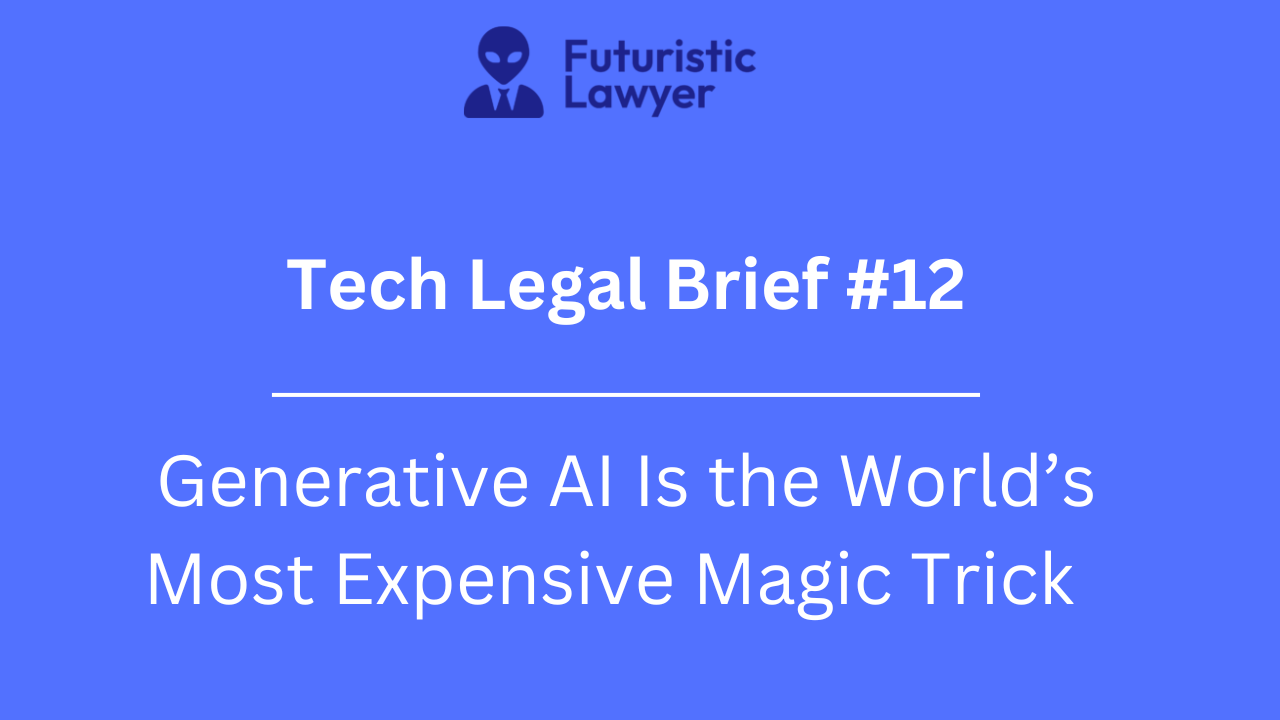Tech Legal Brief #12 – Generative AI Is the World’s Most Expensive Magic Trick
+ more on AI and copyright litigation.
When we are impressed by AI, we are really impressed by ourselves.
The pretrained models are pattern recognition tools that have learned to draw inferences from the bulk of creative work that humans have produced over the last decades, and centuries, in some cases. That means, without knowing it, artists, scientists, writers, casual social media posters,…




